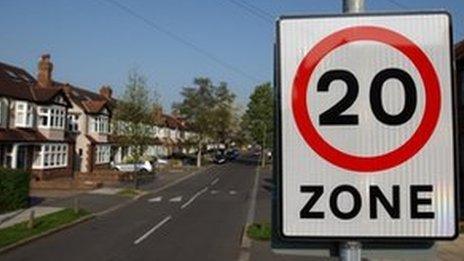Wales 'lagging behind' rest of UK on 20mph streets
- Published
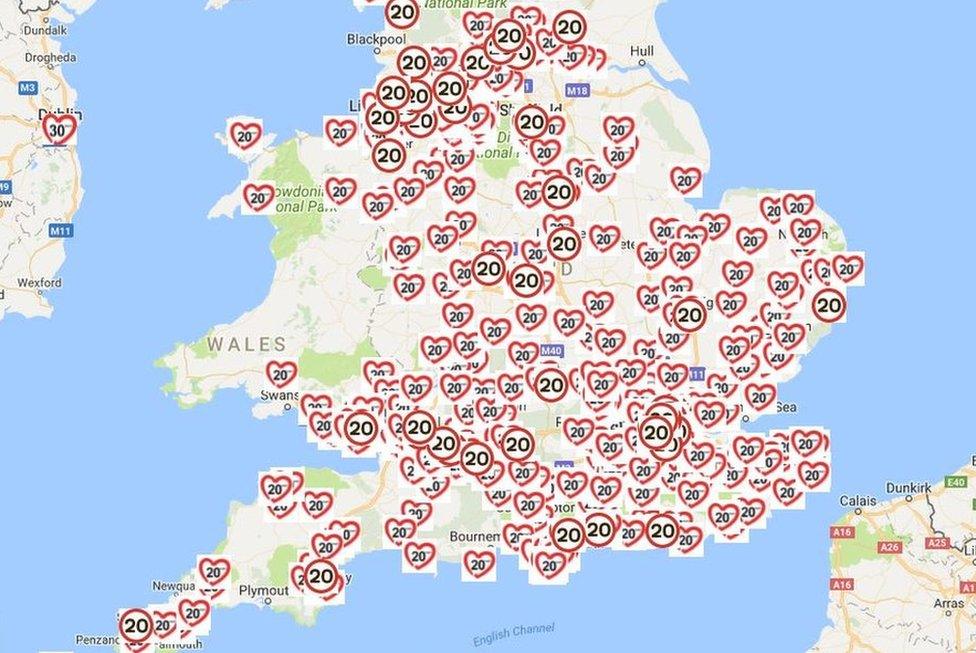
Circular signs show councils with 20mph community zones, heart signs show local campaigns
Wales is lagging behind the rest of the UK when it comes to reducing speed limits from 30mph to 20mph in built-up areas, campaigners have said.
Cardiff is the only council to introduce the reduced speed limit in most of its residential streets, compared with more than 50 in England.
Campaign group 20's Plenty for Us wants the Welsh Government to use new powers to enforce a lower speed limit.
But a motoring group disputed the move would lead to safer streets.
Councils have the responsibility for setting local speed limits - but most in Wales have only brought in 20mph zones directly outside schools.
20's Plenty for Us, external said it was supporting 400 local groups around the country who wanted all residential streets in their areas to cut the limit from 30mph to 20mph (48km/h to 32km/h)
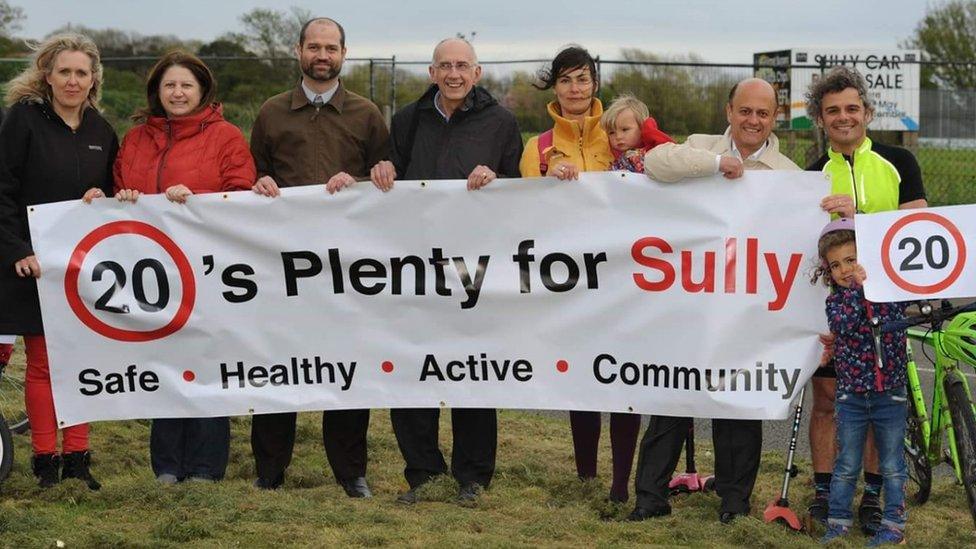
Campaigners in Sully say they do not feel safe walking or cycling in their village
One of them is in Sully, Vale of Glamorgan, where campaigners say they are unable to walk around their village because so many cars travel at "crazy speeds" along its main road, which motorists use to get between Barry, Penarth and Cardiff.
"We really don't feel safe and we asked police about having a fixed speed camera but we were told that wasn't a possibility until someone was killed - and quite frankly we don't want to wait for that to happen," said Kaarina Ruta, one of those behind the campaign, external.
"We've had so much support with many parents saying they can't even walk their children to school or cycle to the beach nearby. At the moment we have a lovely village with lots of amenities but I think many people have to drive everywhere.
"We have had opposition - mostly on social media - saying if people don't pay attention to the 30mph limit, why would they listen to 20mph? But it's about changing attitudes and change has to start somewhere."
Rod King, the founder of 20's Plenty for Us, said Wales was catching up on the idea of having default 20mph limits in built-up areas.
"In England it's happening in so many places - Inner London, Oxford, Cambridge, Bristol, Bath, Warrington... There are also lots of places in Scotland too.
"If you look in Wales there's just Cardiff council that is introducing it across the city.
"I'm not really sure why Wales is so behind on this. But there's support for it and there's now a great opportunity for Wales to catch up as the Welsh Government has the power to implement this nationally.
"It would mean they could introduce a default 20mph national speed limit and then it would be up to local councils to say which roads in their area should have a higher limit. Welsh AMs are responding very positively to the idea."
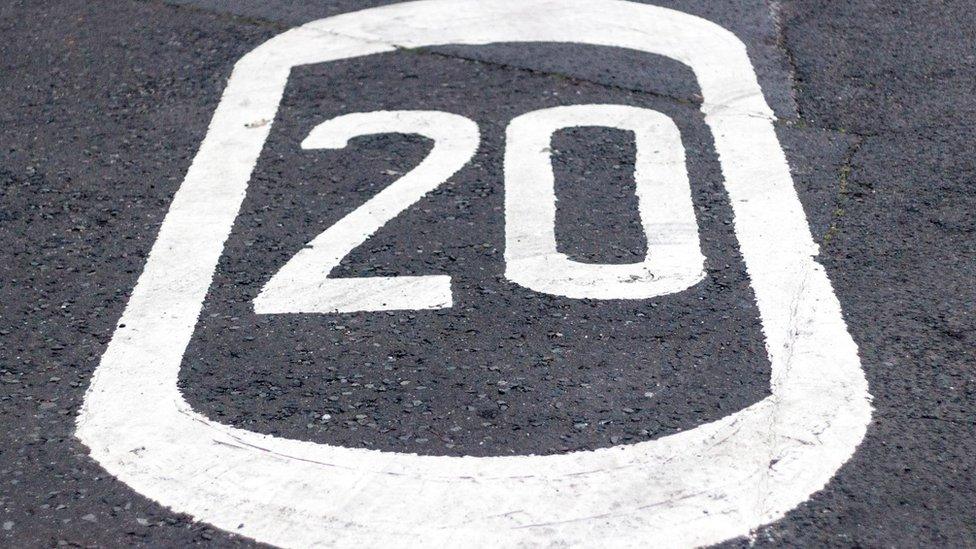
Some people are sceptical that 20mph limits actually increase road safety
He said places already using community-wide 20mph zones were reporting a range of benefits.
"In Bristol it's throughout the city and it's thought to be saving four lives a year and there are about 60 fewer injuries," said Mr King.
"In Edinburgh they found it tripled the number of children cycling to school.
"Wales has a lot of aspirations for getting people cycling and walking more and this would be a real foundation to make that happen."
A report by Public Health Wales, external in 2016 found there would be "significant" public health benefits from dropping the limit.
It said transport emissions would drop by 12% in residential areas and it would result in about 2,000 fewer road traffic casualties each year, saving about £92m.
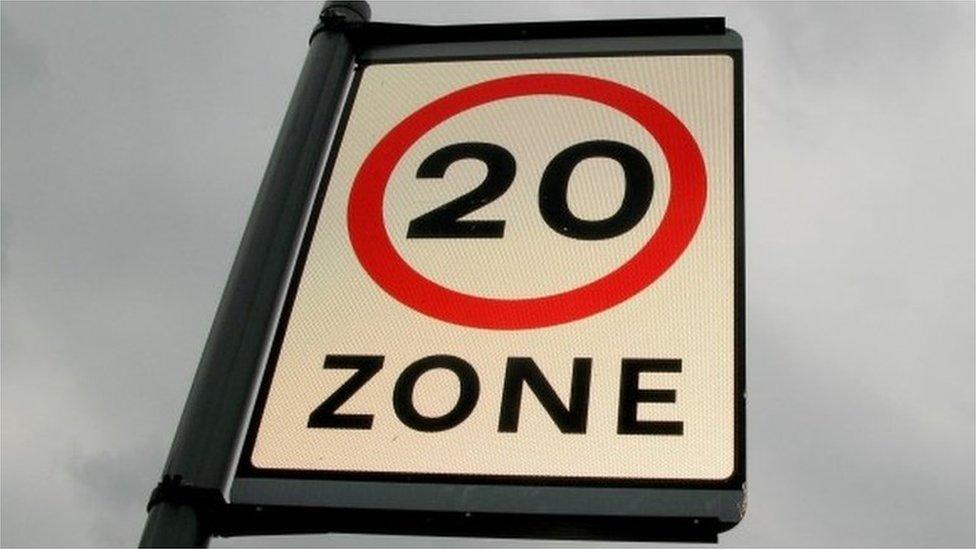
But Hugh Bladon, of the Alliance of British Drivers, external, said bringing in more 20mph zones was an "absurd" idea.
"I live near Bristol where they are spending lots of money on sign posts for 20mph limits and nobody pays a blind bit of notice of them. They do nothing whatsoever," he said.
"And actually if you have a 20mph area it's seen as being a safe area and pedestrians don't pay as much attention to what's going on around them and just wander out into the road.
"It's not the answer to all ills and it's just a knee-jerk reaction."
The Welsh Government said the wider research about the impact of reducing national speed limits "remains inconclusive".
"We are continuing to consider research in this area and are working closely with the Department for Transport who have commissioned a three year research project to consider the benefits of lowering speed limits in 30mph zones," a spokesman added.
"That work is due for completion later in the year."
Mike Clogg, Vale of Glamorgan council's operational manager for engineering, said the authority was happy to meet and work with the Sully group to discuss the details of their specific campaign "as well as the issues and the practicalities of progressing a reduced speed limit within Sully".
- Published11 April 2018

- Published13 February 2018
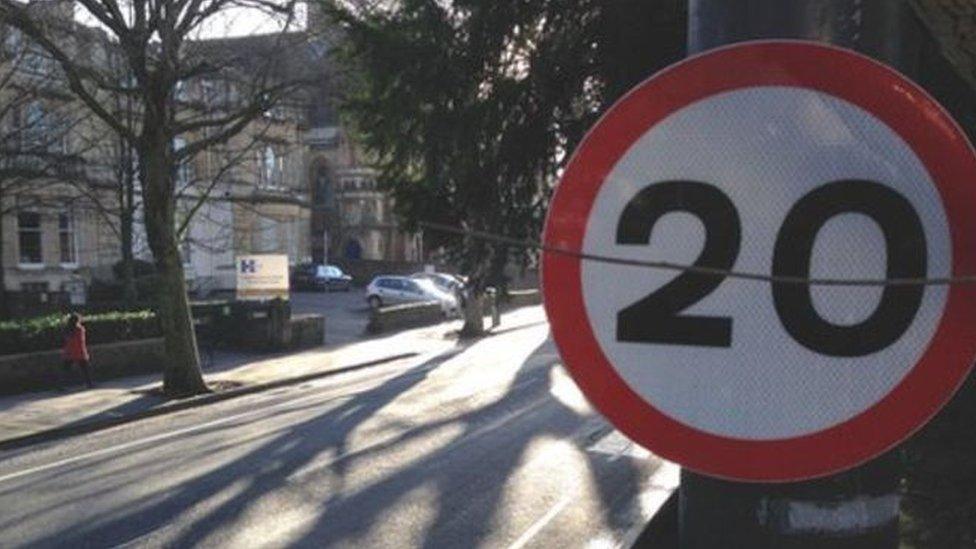
- Published9 July 2017

- Published28 December 2014
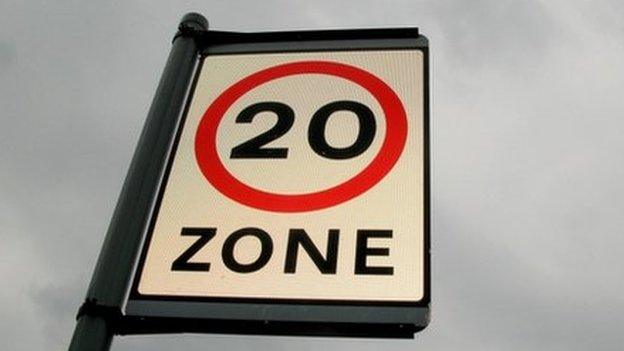
- Published6 February 2013
